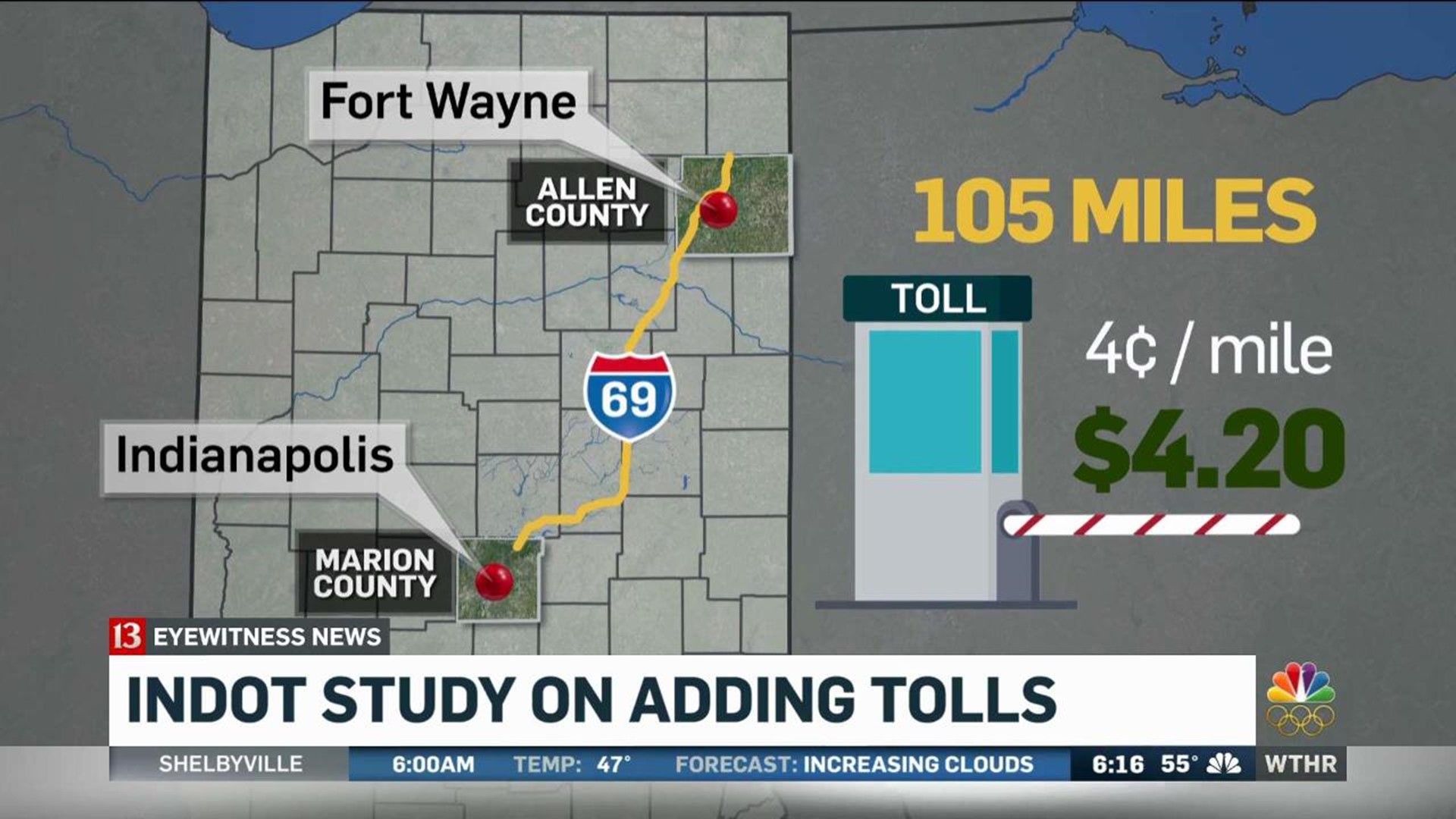INDIANAPOLIS (WTHR) - A new study commissioned by the Indiana Department of Transportation says Indiana could take in up to $53 billion if it turns six interstate highways into toll roads.
According to the study, that money that would go back into improving those roads.
The study included I-64, I-65, I-69, I-70, I-74 and I-94.
And while the study is meant to consider all possibilities, it's enough to put some businesses on edge.
With nine locations across Central Indiana, McNamara Florist is one largest in the country. At their main building on Indianapolis' east side, they not only put together scores of arrangements each day, they make between 200 and 300 deliveries.
When you ask McNamara president Toomie Farris about making I-70 a toll road, especially after the gasoline tax just went up, he gets a bit riled.
"We understand they need the revenue to keep up the roads and we need good roads for our vehicles, but it seems really extreme and really onerous," he said.
So, how much might it cost McNamara and others who if they have to pay tolls as an everyday part of doing business?
A passenger vehicle or van, like one McNamara uses, would pay 4 cents a mile on a new toll road. A medium-sized truck would pay six cents per mile and a heavy truck would pay 19 cents a mile.
As an example, if you're in a passenger vehicle taking I-65 from Indianapolis to Gary, you'd pay $6.12 in tolls.
If you were in medium-sized truck, the toll would be $9.18, and if you were behind the wheel of a semi, it would tally $29.07.
"It's going to add up quickly," Farris said. "With 18 vehicles on the road, the cost of that is huge."
He said his drivers are on the interstates nearly every day, whether it's going to Avon, Greenwood or Ft Wayne. And even if they drive just a portion of a toll road, it's an added cost. Farris said that goes for the florist's suppliers as well.
"So our product costs inbound is going up an our costs to distribute to our customers, so I would say it could affect us 20 to 30% in our delivery fees, just if tolls were implemented," he said.
The study predicted that that between 9 and 22% of people who typically use interstates would find alternate routes to avoid tolls.
Farris said that wouldn't be practical for his drivers. He said taking surface streets "is going to cost us time, so if we avoid a toll, we're going to spend more time on surface streets."
He said toll roads "are not anything I could support in any way."
INDOT spokesman Scott Manning said the next step in the process is hiring a vendor to put together "a strategic plan for implementation."
Any new toll roads, be it a portion of an interstate, or the entire length of one, would have to be approved by the governor and the federal government.

